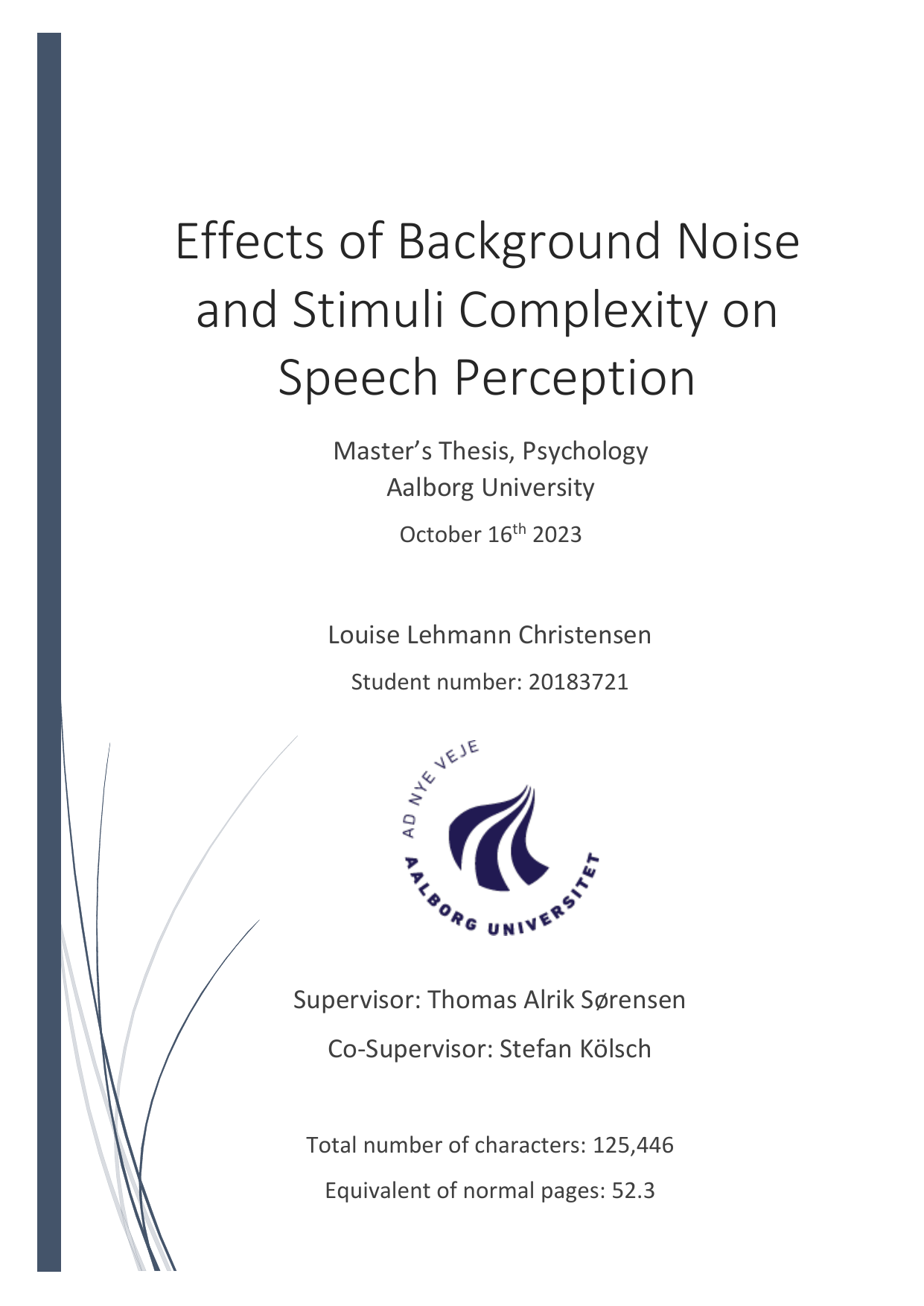
Effects of Background Noise and Stimuli Complexity on Speech Perception
Author
Term
4. term
Education
Publication year
2023
Submitted on
2023-10-15
Pages
82
Abstract
In the realm of speech perception, the presence of background noise poses significant challenges, complicating communication for individuals with both normal and impaired hearing. Expectations play a pivotal role in this soundscape, influencing our ability to detect and interpret auditory input, especially in noisy environments. This thesis delves into the impact of background noise and increased stimuli complexity on speech sound perception, utilizing the Mismatch Negativity (MMN) as a neurophysiological tool. Furthermore, it seeks to understand the impact of these factors within the framework of Predictive Coding (PC). The primary aim of this thesis is to investigate how background noise and increased stimuli complexity affect the perception of speech sounds and to comprehend the underlying mechanisms within the PC framework. Specifically, this thesis employs the vowel sounds /a/ and /e/ as speech stimuli to investigate the auditory discrimination ability regarding timbre deviants, with unintelligible babble noise used as background noise. Four key hypotheses were proposed and tested, providing insight into the dynamics of this interplay. The results supported the first hypothesis, confirming that the presence of background noise leads to a reduction in MMN amplitude. This outcome underscores the influence of noise on speech sound perception. The second hypothesis was also substantiated, revealing that increased stimuli complexity diminishes MMN amplitude, emphasizing the importance of considering complexity when studying neural processing of speech sounds. While the third hypothesis regarding an interaction between background noise, stimuli complexity, and its influence on the MMN did not yield statistically significant results, a noteworthy trend emerged, suggesting a potential relationship deserving further exploration. Finally, the fourth hypothesis, which predicted an increase in the peak amplitude latency of the MMN in response to the presence of background noise, was supported by the results, highlighting the temporal impact of noise on neural responses. Within the context of predictive coding, these findings can be understood as a reflection of decreased prediction error induced by timbre deviations. The brain forms predictive models of future events, and the reliability of these predictions directly influences neural responses to deviations from them. Increased attentional demands resulting from background noise and stimuli complexity lead to a decrease in the precision of predictions, thereby affecting the ERP amplitude in response to standard stimuli, which, in turn, results in a reduced MMN signal. In summary, this study contributes to our understanding of how background noise and increased stimuli complexity impact speech sound perception within a predictive coding framework. While acknowledging the limitations of this research, the findings support previously established results in the field, providing insights for future inves-tigations aimed at enhancing auditory discrimination in noisy environments. This, in turn, holds the potential to ultimately benefit individuals with hearing impairments and advance hearing aid technology.
Documents
